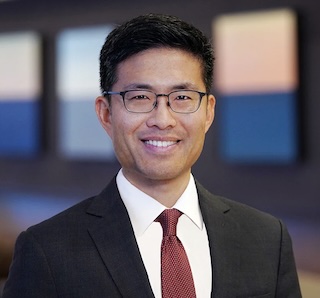Trump Nominates Another AAPI Appellate Judge
By Romen Basu Borsellino | 25 Jul, 2025
President Trump, who has already appointed more AAPI appellate judges than any previous Republican President, has nominated Eric Tung for the 9th Circuit.
By nominating Eric Tung to serve on the US Court of Appeals for the Ninth Circuit, President Trump has further solidified his reputation for appointing more AAPI appellate judges than any previous Republican president.
Eric Tung is a partner at the law firm Jones Day and has clerked for conservative US Supreme Court justices Neil Gorsuch and the late Antonin Scalia. His selection by Trump has drawn praise from the bipartisan National Asian Pacific American Bar Association (NABPA), whose President Thy Bui described him as “an exceptional nominee whose distinguished career demonstrates a commitment to the law.”
That's not to say that Trump is aimed at bipartisanship. In his announcement of the nomination, he “a Tough Patriot, who will uphold the Rule of Law in the most RADICAL, Leftist States like California, Oregon and Washington.”
The thirteen appellate courts across the United States are just one step below the US Supreme Court. The Ninth Circuit, which is based out of San Francisco and oversees California, Arizona, Nevada, Oregon, Washington, Idaho, Montana, Alaska, Hawaii, has the largest AAPI constituency of any appellate court.
If confirmed — which seems to be a foregone conclusion given Republicans’ Senate majority — Tung will replace George W. Bush appointee Sandra Segal Ikuta who, according to the NABPA, “has been mistaken by some to be Asian Pacific American” even though “She is, in fact, Caucasian.”
Bush, the last Republican president before Trump, didn’t appoint a single Asian American to the appellate courts.
During his first term, Trump was responsible for appointing six of the appellate court’s eleven AAPI judges: Amul Thapar, James Ho, Neomi Rao, Michael Park, Kenneth Lee and Patrick Bumatay.
When it comes to US District judges, a step below appellate, Trump’s record is less impressive. Just 3.5% of his appointees have been AAPI.
In April, GoldSea covered President Biden’s legacy of appointing for 40% of all Asian American lifetime judges who have ever been confirmed, double the number of any previous single President.
Prior to Biden’s appointment of 41 AAPI judges, President Obama appointed what was, at the time, a record 22 lifetime appointments of Asian American judges.
But despite the President’s numerous AAPI appointments, Trump lags recent presidents in putting non-white judges on the bench. 85% of his additions to appellate courts have been White. 13% have been AAPI, 1.9% have been Hispanic, and 0% have been black.
It begs the question: Why has Trump embraced AAPI judicial appointments relative to other ethnicities?
For one, it may be indicative of available options. As Fordham Law professor Tom Lee told Bloomberg Law, “There’s actually a large pool of ideologically conservative Asian Americans with the sufficient experience and credentials to make plausible appellate court picks.”
Per a 2018 study by the National Association of Law Placement, Asians made up 11.69% of associates at US law firms compared to 4.71% for Hispanic associates and 4.48% for Black associates.
This is not to say that Asian Americans are any more qualified or deserving of these opportunities than other ethnicities. It may be the case that racial barriers have made it more difficult for Blacks and Hispanics to achieve the requisite positions that would put one on track to become a judge.
The most cynical among us might also wonder if Trump is seeking to solidify his standing with the Asian community, a demographic that the President made slight inroads with during the 2024 election. He received the support of roughly 33% of English speaking Asian Americans, up from 29% in 2020.
On Tuesday, the Associated Press reported that Trump’s standing among Asian Americans has plummeted. 71% have an unfavorable rating of the President. That number was 60% in December.
It begs the question: Why has Trump embraced AAPI judicial appointments relative to other ethnicities?

Photo from Jones Day
Articles
- Bad Bunny Feud May Tatter Trump Midterm Prospects with Hispanics
- Molecules Your Body Loses with Age—And How to Replenish Them
- In Big Speech Rubio Tells Europe to Pollute More, Deport Like the US
- Zelensky Calls Out Trump for One-Sided Negotiations
- Eileen Gu, Beverly Zhu Received Chinese Government Funding
Asian American Success Stories
- The 130 Most Inspiring Asian Americans of All Time
- 12 Most Brilliant Asian Americans
- Greatest Asian American War Heroes
- Asian American Digital Pioneers
- New Asian American Imagemakers
- Asian American Innovators
- The 20 Most Inspiring Asian Sports Stars
- 5 Most Daring Asian Americans
- Surprising Superstars
- TV’s Hottest Asians
- 100 Greatest Asian American Entrepreneurs
- Asian American Wonder Women
- Greatest Asian American Rags-to-Riches Stories
- Notable Asian American Professionals

